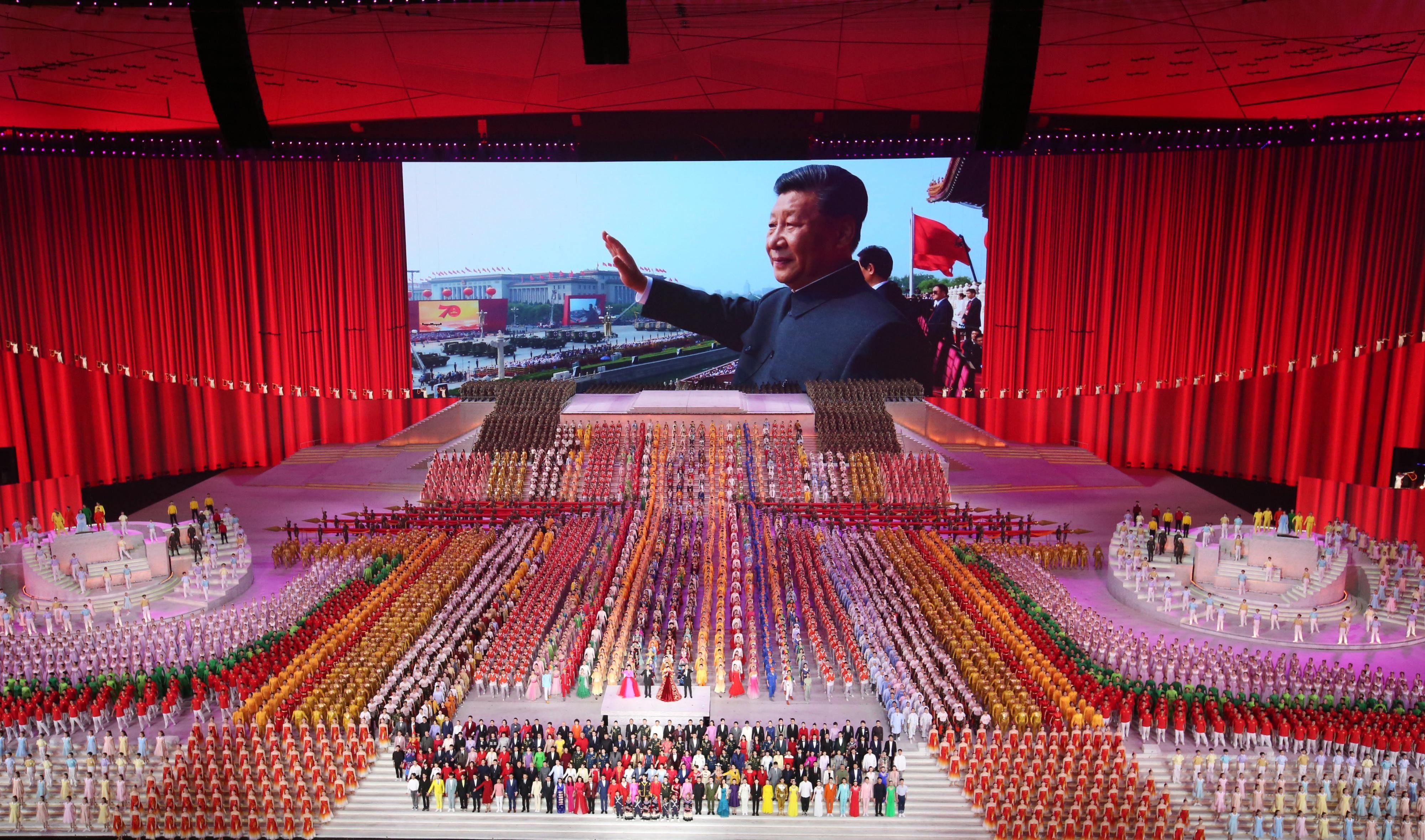Image of Xi Jinping in the background of a performance during the 100th anniversary of China's Communist Party in Beijing.
Later this week, Xi Jinping will get a precedent-shattering third term as secretary-general of China's ruling Communist Party. He's the most influential CCP leader since Deng Xiaoping and has elevated himself to the same stature as Mao Zedong. Xi now has virtually unfettered power in the world's most populous country and second-largest economy.
Yet, we know surprisingly little about him. China’s leader is not on social media, gives few interviews, and his bland public statements and carefully curated official biography offer few clues about what’s on his mind. Although Chinese kids study Xi Jinping Thought, he remains a black box for anyone outside of the CCP elite and those who know him personally.
So, what makes Xi tick? "He's motivated by power, by his understanding of Chinese history, by his sense of entitlement and privilege, and by China's future," says Sue-Lin Wong, former China correspondent for the The Economist and host of the podcast "The Prince" about all things Xi.
Xi's background is more complex than you'd think. On the one hand, he's the son of Xi Zhongxun, a revolutionary who fought alongside Mao in the Civil War and later became his chief propagandist and vice premier. Like most of China's current leadership, Xi is CCP royalty and benefited from his dad's street cred in rising to the top of the party.
On the other hand, the elder Xi was also one of many CCP senior officials who were purged by the Red Guards in the Cultural Revolution (1966-1976), when his entire family was exiled to the countryside and had to live in a cave. But instead of blaming the party for his hardship, as some of his peers did, Xi’s takeaway was that such chaos must never, ever happen again.
"He believes that the party lost control” during that time, says Wong. “And so as long as the party stays in control, everything will be fine.”
That explains why Xi was equally traumatized by the end of the Soviet Union. He will do anything to stop the CCP from crumbling like the USSR — which to this day haunts the Chinese Communists.
Still, Xi the control freak faces tough internal and external challenges as he cements his power amid turbulent times for China. Zero-COVID is doing such a number on the economy that China is sitting on its latest GDP growth numbers, and the property market is performing so poorly that Xi didn't mention it in his keynote speech on Sunday.
Meanwhile, Russia's war in Ukraine — started by his BFF Vladimir Putin — is making the geopolitical environment more uncertain than Xi is comfortable with. But even if Putin gets humiliated in Ukraine, don’t expect Xi to side with the West.
After all, Xi sees the US as the top obstacle to realizing his ambitions: America will do whatever it take to keep China down. In this sense Xi particularly resents US support for Taiwan, which the West views as a democracy heroically standing up to authoritarian China but Beijing regards as its 23rd province.
Xi's ambition and drive cannot be understated in his quest to make China strong, with him calling all the shots. "I don't think there are many world leaders who lived in a cave for seven years as a teenager and have risen through the ranks of the CCP, which is this incredibly brutal, angry political machine," Wong says.
Unlike his predecessors, who accepted term limits, Xi sees his one-man rule as the best solution for China. No wonder the party intends to officially give him the symbolic title of "Great Helmsman" like Mao, which carries great weight in CCP political culture.
For Wong, Xi thinks “he is the man to be steering that ship and to be navigating China through these stormy waters” of COVID, a slowing Chinese economy, the war in Ukraine, and growing tensions with the West.
But his determination to be all-powerful might hurt Xi in the long run. If he continues surrounding himself with yes-men over experts, few will want to give him bad news and he might start making the wrong choices. And refusing to appoint a successor is a huge gamble if he encounters a health problem.
“That could have terrible implications,” Wong warns, “not just for the whole of China, but for the rest of the world."
This article comes to you from the Signal newsletter team of GZERO Media. Sign up today.
